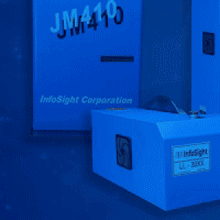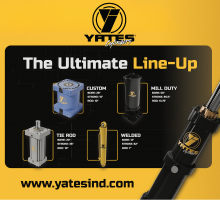Siemens to Supply Bar Rolling Mill to Thai Steel
07/02/2014 - Siemens Metals Technologies has received an order from Thai Steel Profile Co. Ltd. (Thai Steel) to supply a new bar rolling mill for its plant in Rayong, Thailand.
The rolling mill will produce around 500,000 metric tons of reinforcing steel (rebars) per annum with diameters ranging from 9 to 40 millimeters. Diameters up to 14 millimeters will be rolled in multi-slit mode. Commissioning is scheduled for the second half of 2015.
Founded in 1994, Thai Steel already runs a bar and profile rolling mill in Rayong Province, which has a capacity of 400,000 metric tons per annum. Siemens modernized that plant starting from 2010 in multiple stages, including a hardening system, precise bar counting, new bar in coil and upgrade to produce sections, squares and flats. The new bar rolling mill now ordered will enable Thai Steel to more than double its capacities for supplying the regional construction industry.
The starting material for the bar rolling mill will comprise 12 meter billets of carbon steel with a square cross-section of 150 x 150 millimeters, which will be processed into rebars with diameters ranging from 9 to 40 millimeters. In order to increase the
productivity of the plant, bars with diameters between 12 and 14 millimeters will be rolled in two-slit mode, and those with diameters between 9 and 10 millimeters in four-slit mode.
The rolling line will consist of a roughing mill and an intermediate mill, each with six Red Ring stands in an HV arrangement, and a finishing mill, featuring six Red Ring stands in an HVC arrangement. An inline PQS quenching system gives the bars a martensitic case and a ferritic-pearlitic core. The downstream hot dividing shear is equipped with an optimization system to maximize the utilization of the cooling bed and bar handling system. The cooling bed is 78 meters long and 12.5 meters wide. A cold static dividing shear handles the final cutting of the rolled bars. This is followed by automatic counting, bundling, strapping, weighing machines and bending of bundles. The scope of delivery also includes all the rolling guides and fluid systems.
The bar rolling mill is designed so that the plant can be retro-equipped at a later date with an induction furnace to optimize billet reheating while reducing the amount of formed scale, and an ERT-EBROS billet welding system to allow endless rolling. Siemens is responsible for the design of the equipment supplied, the entire process planning of the bar rolling mill, and customer training. It will also assist Thai Steel with the construction, startup and commissioning of the plant.
Founded in 1994, Thai Steel already runs a bar and profile rolling mill in Rayong Province, which has a capacity of 400,000 metric tons per annum. Siemens modernized that plant starting from 2010 in multiple stages, including a hardening system, precise bar counting, new bar in coil and upgrade to produce sections, squares and flats. The new bar rolling mill now ordered will enable Thai Steel to more than double its capacities for supplying the regional construction industry.
The starting material for the bar rolling mill will comprise 12 meter billets of carbon steel with a square cross-section of 150 x 150 millimeters, which will be processed into rebars with diameters ranging from 9 to 40 millimeters. In order to increase the
productivity of the plant, bars with diameters between 12 and 14 millimeters will be rolled in two-slit mode, and those with diameters between 9 and 10 millimeters in four-slit mode.
The rolling line will consist of a roughing mill and an intermediate mill, each with six Red Ring stands in an HV arrangement, and a finishing mill, featuring six Red Ring stands in an HVC arrangement. An inline PQS quenching system gives the bars a martensitic case and a ferritic-pearlitic core. The downstream hot dividing shear is equipped with an optimization system to maximize the utilization of the cooling bed and bar handling system. The cooling bed is 78 meters long and 12.5 meters wide. A cold static dividing shear handles the final cutting of the rolled bars. This is followed by automatic counting, bundling, strapping, weighing machines and bending of bundles. The scope of delivery also includes all the rolling guides and fluid systems.
The bar rolling mill is designed so that the plant can be retro-equipped at a later date with an induction furnace to optimize billet reheating while reducing the amount of formed scale, and an ERT-EBROS billet welding system to allow endless rolling. Siemens is responsible for the design of the equipment supplied, the entire process planning of the bar rolling mill, and customer training. It will also assist Thai Steel with the construction, startup and commissioning of the plant.








